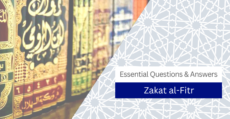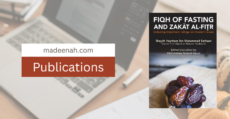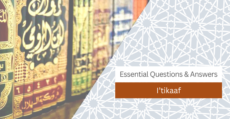Reference: The Explanation of Zaad al-Mustaqni’ (2/382-383), after the author says, “And it is obligatory to avoid lying, backbiting and insulting [others].”
There are things that are impermissible for the one fasting [to do] even though they do not nullify his fast. They are called “Mufattiraat Ma’nawiyyah” (figurative nullifiers).
They include: Gheebah which is to mention your brother in a manner that he dislikes and Nameemah which is to spread slander between people. It also includes insulting, abusing and cursing [people] and other than that from prohibited speech. All of these affairs are impermissible for the Muslim whether he is fasting or not. However, it is more severe [in prohibition] as it relates to the one fasting. That is because it may remove the reward of his fast, thus leaving him with no benefit [at all]. The only thing that he would gain is fatigue, thirst and hunger.
The Prophet (صلى الله عليه وسلم) said:
«Whoever does not leave off false statements (all prohibited speech) and acting according to them, Allaah is not in need of his abstaining from his food and drink.»[1]
These affairs are prohibited always and forever; however they are more severe [in prohibition] as it relates to the one fasting, because they either eliminate the reward of one’s fast or decrease it and puncture it.
This is because fasting – as the Prophet (صلى الله عليه وسلم) said – is a shield (i.e. a protection). So if the shield is punctured, it does not benefit its possessor nor does it guard him from the enemy’s arrows. But if the shield is strong and solid, he can use it to protect him from the enemy’s weapon.
Likewise, if the Siyaam is correct (i.e. performed in accordance to the Sharee’ah) and free from Gheebah, Nameemah, false speech and insults then indeed it shields him from Allaah’s punishment. But if it is a feeble fast, punctured with Gheebah, Nameemah, insults, false speech and abuse then it is a fast that will neither prevent him from sin nor from punishment.
Footnote
[1] al-Bukhaaree – #1903
الاعداد لرمضان
المرجع: شرح زاد المستقنع – ج2 ص382-383
<هناك أشياء تحرم على الصائم ولكنها لا تبطل الصيام وتسمى بالمفطرات المعنوية وذلك كالغيبة وهي ذكرك أخاك بما يكره, والنميمة وهي: نقل الوشاية بين الناس, وكذلك الشتم والسبّ واللعن وغير ذلك من الكلام المحرم, كل هذه أمور تحْرم على المسلم, سواء كان صائما أو مفْطرا, لكنها في حق الصائم أشدّ؛ لانها قد تذهب بثواب صيامه فلا يبقى له ثواب, وإنما يكون عليه التعب والعطش والجوع. قال صلى الله عليه وسلم : (( من لم يدع قول الزور والعمل به والجهل فليس لله حاجة في أن يدع طعامه وشرابه )). فهذه الأمور محرمة دائما وأبدا, ولكنها في حق الصائم أشد؛ لأنها تذهب بثواب صيامه, أو تنقصه وتخرقه؛ لأن الصوم كما قال النبي صلى الله عليه وسلم (( جنة )), أي وقاية. فإذا كانت الجنة مخرقة لم تنفع صاحبها ولم تستُرْه من سهام العدوّ, أما إذا كانت الجنة قوية ومتماسكة فإنه يتقي بها سلاح العدوّ. وكذلك الصيام إذا كان صياما صحيحا سالما من الغيبة والنميمة ومن قول الزور ومن الشتم فإنه يقيه من عذاب الله عز وجل, وأما إذا كان صوما مهلهلا مخرقا بالغيبة والنميمة والشتم وقول الزور والسباب؛ فإنه صوم لا يمنعه من الإثم ولا يمنعه من العذاب/p>





